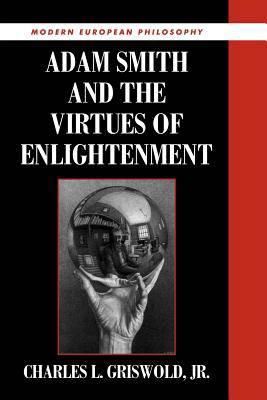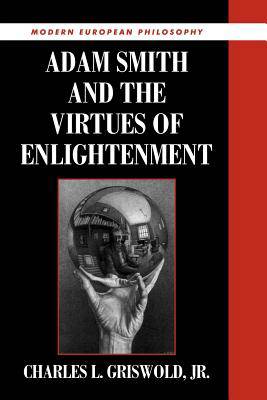
Door een staking bij bpost kan je online bestelling op dit moment iets langer onderweg zijn dan voorzien. Dringend iets nodig? Onze winkels ontvangen jou met open armen!
- Afhalen na 1 uur in een winkel met voorraad
- Gratis thuislevering in België vanaf € 30
- Ruim aanbod met 7 miljoen producten
Door een staking bij bpost kan je online bestelling op dit moment iets langer onderweg zijn dan voorzien. Dringend iets nodig? Onze winkels ontvangen jou met open armen!
- Afhalen na 1 uur in een winkel met voorraad
- Gratis thuislevering in België vanaf € 30
- Ruim aanbod met 7 miljoen producten
Zoeken
€ 57,95
+ 115 punten
Uitvoering
Omschrijving
Although Adam Smith is often thought of today as an economist, he was in fact (as his great contemporaries Hume, Burke, Kant, and Hegel recognized) an original and insightful thinker whose work covers an immense territory including moral philosophy, political economy, rhetorical theory, aesthetics, and jurisprudence. Charles Griswold has written the first comprehensive philosophical study of Smith's moral and political thought. Griswold sets Smith's work in the context of the continuing debate about the nature and survival of the Enlightenment, and relates it to current discussions in moral and political philosophy. Smith's appropriation as well as criticism of ancient philosophy, and his carefully balanced defense of a liberal and humane moral and political outlook, are also explored. This is a major reassessment of a key figure in modernity that will be of particular interest to philosophers and political and legal theorists, as well as historians of ideas, rhetoric, and political economy.
Specificaties
Betrokkenen
- Auteur(s):
- Uitgeverij:
Inhoud
- Aantal bladzijden:
- 428
- Taal:
- Engels
- Reeks:
Eigenschappen
- Productcode (EAN):
- 9780521628914
- Verschijningsdatum:
- 13/11/1998
- Uitvoering:
- Paperback
- Formaat:
- Trade paperback (VS)
- Afmetingen:
- 154 mm x 230 mm
- Gewicht:
- 585 g

Alleen bij Standaard Boekhandel
+ 115 punten op je klantenkaart van Standaard Boekhandel
Beoordelingen
We publiceren alleen reviews die voldoen aan de voorwaarden voor reviews. Bekijk onze voorwaarden voor reviews.











